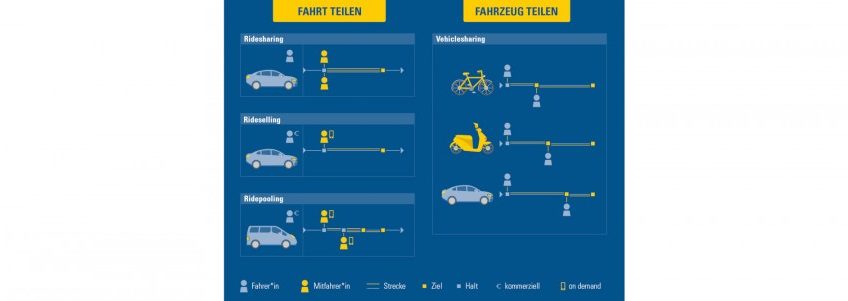Sharing services are becoming increasingly popular in the context of mobility. They offer great advantages to the users, but at the same time pose challenges for municipalities and transport companies.
Besides classic schemes such as carpooling services – where private individuals let others ride in their car for a share of the costs – or call-a-bus or call-a-taxi services, new options have appeared in recent years. These include car sharing or eCarsharing where cars are shared by numerous people using the car individually, or where people share a vehicle with others wishing to travel a similar route. In the latter case one speaks of ride sharing or ridepooling. Due to the increasing number of providers and sharing options, the boundaries between public transport and sharing services are becoming increasingly blurred.
From the users’ point of view, sharing services are an attractive addition to the scope of mobility options. For local municipalities, the question arises in particular as to how such services change traffic patterns in the municipality, and what effects they have on existing services. If they have a traffic-reducing effect, new types of mobility services can also further increase their positive environmental impact by using alternative drive systems.
Municipalities have the opportunity to provide corresponding incentives for sharing services in order to make electric mobility more attractive in this area. However, the variety of services on offer also represents a challenge. Sharing services should not compete with local public transport if possible. Rather, they should be seen and used as an extension of it.
The Electric Mobility Starter Set (Starterset Elektromobilität) shows how the services work in the website’s Info Centre (in German).
The NOW Electric Mobility Starter Set [Starterset Elektromobilität]


